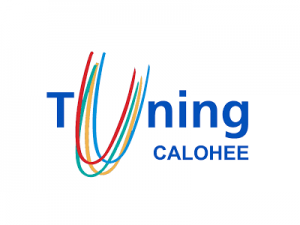
CALOHEE: an international diagnosis of higher education learning is available!
Can higher education learning be improved and the improvement evidenced? There is an apparent lack of trust by civic society of the performance of higher education institutions, especially regarding the relevance and effectiveness of the learning process that students undertake. What is lacking are any clear up-to-
date and forward-looking indicators to decide whether the learning it really appropriate. How can this be diagnosed and the diagnosis used to enhance learning and better prepare all students for their future roles in society?
The Measuring and Comparing Achievements of Learning Outcomes in Higher Education in Europe (CALOHEE) project, through the work of groups of academics and students, in consultation with a wide circle of stakeholders, including employers, graduates, and professional bodies has analysed the general descriptors of 5 subject areas (Civil Engineering, Teacher Education, History, Nursing, and Physics). The team includes representatives from 28 countries.
Each subject analysis has then been placed in the context of a merger of the Qualifications Framework of the European Higher Education Area (EHEA) and the European Qualifications Framework for Lifelong Learning. This analysis has resulted in three core documents: Subject Area Qualifications Reference Frameworks; Assessment Reference Frameworks; and Guidelines and Reference Points Brochures. These provide a detailed insight into what students are expected to learn to be well prepared for their future. Higher Education Institutions will be able to match their present programme designs and contents with internationally developed reference points. Quality Assurance (QA) Bodies will have access to reliable internationally agreed frameworks to assess the quality and relevance of individual degree programmes.
Subject Area Qualifications and Assessment Reference Frameworks
The Subject Area Qualifications Reference Frameworks provide a sound basis for defining the programme learning outcomes of individual degree programmes of the first and second cycle. Making the distinction between knowledge, skills and autonomy and responsibility (‘wider competences’) they offer clear indicators for the alignment with the (potential) workplace and for active civic, social and cultural engagement.
The Assessment Reference Frameworks, which offer examples of good practice of learning, teaching and assessment (LTA) methods and approaches to achieve the level of competence indicated. The use of a variety of appropriate LTA methods and approaches is another indicator for deciding on the quality of a degree programme. These offer broad ‘menus’ of what has been identified as the learning of each subject area. The diagnosis allows for informed choices regarding the composition and implementation of individual degree programmes.
The Guidelines and Reference Points Brochures for each of the pilot subjects provide educators, administrators, students and quality assurance experts with tools for understanding how degree programmes can be most effectively improved. They also offer clear indicators about the potential employability fields, and in particular the roles, responsibilities and tasks which graduates are expected to take up in society.
Significant Impact on EU Policy
CALOHEE outcomes contribute significantly to EU policies and plans for the future. In June 2016 the project aims have been in effect made formal EU policy by including these in the EC Communication ‘A New Skills Agenda for Europe’, which asks for evidence-based learning.
Commissioner Tibor Navracsics, responsible for Education, Culture, Youth and Sport, stressed the importance of CALOHEE: “Boosting economic growth and job creation in Europe is the top political priority of this Commission. We will only succeed in this if we help ensure that our education institutions equip people with the skills needed in a dynamic, globalised economy. That is why I am very much looking forward to the results of this study funded under our Erasmus+ programme. We need more reliable data on how higher education institutions across Europe perform in order to raise standards – and I particularly welcome the focus on competences related to employability.
